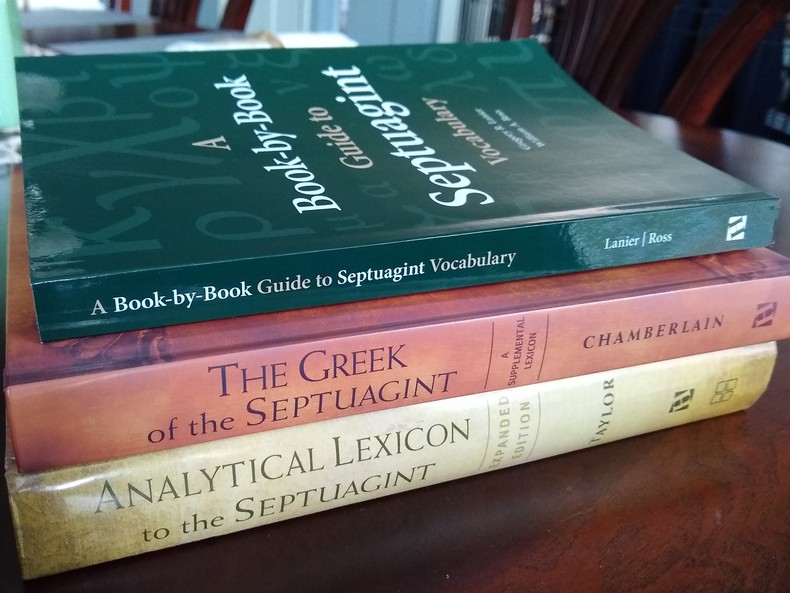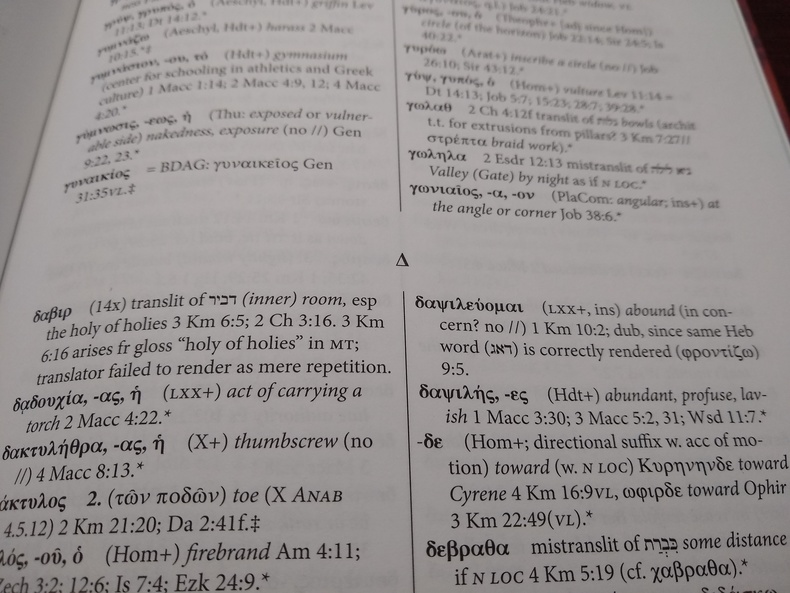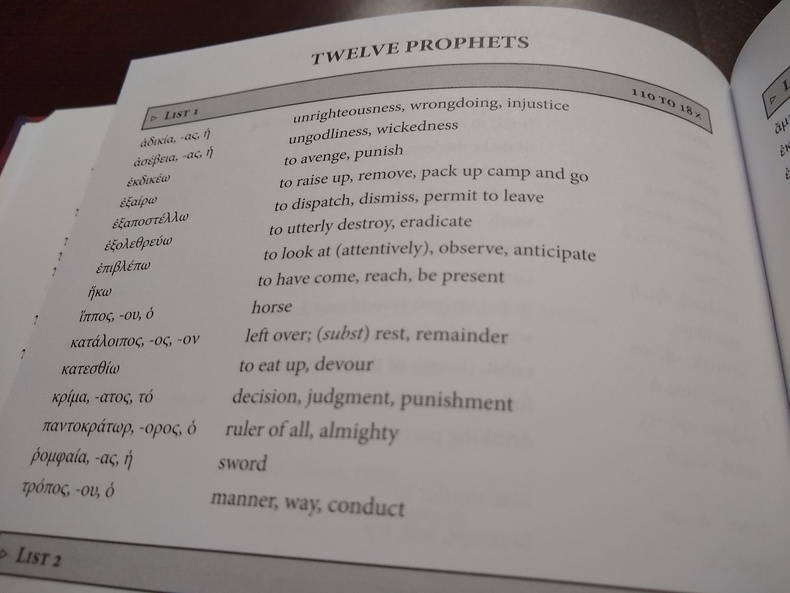
With Hendrickson's release in late 2018 of the Reader's Septuagint, I began looking for resources to help me in my LXX reading and study. Thankfully, Hendrickson has also blessed us with a host of books to deepen our knowledge of Septuagint Greek. This post will review three. The first two have been around for several years but became more important for me with the release of the Reader's Septuagint, which made the LXX much more approachable and increased the attention and time I (and presumably many others) gave to the Greek Old Testament. The third book is brand new as of the end of 2019.
First and foremost, one of necessary resources for students of the LXX is a good lexicon. Given that most will already have a copy of the standard New Testament Greek lexicon (BDAG) on hand, Gary Chamberlain set out to create a supplemental lexicon to be used alongside BDAG by LXX readers. This work, The Greek of the Septuagint: A Supplemental Lexicon, contains definitions, morphological information, extrabiblical uses, etc. for more than 5,000 Greek words not found in the New Testament.

Users of BDAG will be immediately familiar with the format, which intentionally mimics BDAG and makes going back and forth between the two nearly seamless. Chamberlain even goes so far as to continue BDAG's numbering scheme for words defined in the NT lexicon that require additional explanation for their usage in the LXX. As in BDAG, instances of a word's occurrence in the LXX are cited along with extrabiblical appearances (by author and work), so reader's can compare usage in multiple places.
For more curious readers, there are a number of word list appendices providing additional information such as: words whose meaning is precisely paralleled outside of the LXX, words transliterated from Hebrew or Aramaic, words that appear only in the LXX, and Greek words whose first recorded use is in the LXX. There is also a word list detailing which LXX words are adequately covered by BDAG, which are included only in this lexicon, and which appear in both.
For Greek students who already own BDAG and are looking to study/read the LXX, this is a great, concise resource to add to your library!
In addition to a good lexicon, Bernard Taylor's Analytical Lexicon to the Septuagint is a tremendous resource. In short, this lexicon contains parsing and lexical information for every word in the LXX.
More specifically, this lexicon contains lemmas (i.e. the form of the word as found in the LXX), lexical form, brief definitions, and morphological/parsing information for every word. Some words also contain brief explanatory information showing how a word may be used in context, a contextualized meaning, and/or syntactical information associated with particular meanings/usages (e.g., certain definition when followed by an infinitive or other form).
![]()
While all of the information in this book is easily and maybe even more quickly available in electronic resources, those of us who still like studying in books will find this resource a tremendous asset. There is undeniably something to wresting with words and taking the time to look them up that burns them into our brains and facilitates learning in ways that all the electronic tools in the world cannot.
For those who share this mindset and want to collect/use resources that will stand the test of time as only the printed word can, Taylor's work is an essential resource.
Finally and most recently, Hendrickson released Greg Lanier and William Ross's volume, A Book-by-Book Guide to Septuagint Vocabulary. This volume has the incredibly important but focused purpose of helping us increase our LXX vocabulary skills. For Septuagint readers, vocabulary acquisition is much more challenging than it is for the New Testament. Whereas the New Testament has just over 5,300 unique words, the Septuagint has over 11,000 (not counting proper nouns)!
The genius of this book is its approach. Up front is a New Testament refresher list, covering words down to 12x frequency. Then follow lists of high-frequency LXX vocabulary (words down to 100x in the entire LXX) and common proper nouns. The bulk of the work, however, is word lists organized by biblical book and frequency. For example, the section on Genesis contains 20 word lists (of 15 words each) covering vocabulary down to 4x in the book of Genesis. This organization allows students to concentrate on acquiring vocabulary in the area of the LXX they are reading, while ignoring higher frequency words that may only appear in different books. It is a very practical approach with immediate benefit to the student/reader.

Learning vocabulary may not be the most glamorous part of the biblical languages, but it is absolutely essential. This work would make a great addition to your library.
There's never been a better time to study and read the Septuagint! After all, it is the version of the Old Testament most cited by Jesus and the inspired authors of the New Testament...and the version preferred by the Orthodox tradition for two thousand years.
Note: Hendrickson provided review copies of the first two books in exchange for an honest review. I purchased the third at my own expense.
